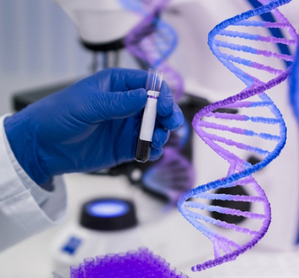Study finds new gene mutation that protects against Parkinson’s
A team of US researchers have identified a previously unknown genetic mutation in a small protein that provides significant protection against Parkinson’s disease.
The study, led by the team at the University of Southern California (USC) offers a new direction for exploring potential treatments.
The variant, located in a mitochondrial microprotein dubbed SHLP2, was found to be highly protective against Parkinson’s disease; individuals with this mutation are half as likely to develop the disease as those who do not carry it.
The variant form of the protein is relatively rare and is found primarily in people of European descent, reveals the study, appearing in the journal Molecular Psychiatry.
“This study advances our understanding of why people might get Parkinson’s and how we might develop new therapies for this devastating disease,” said Pinchas Cohen, Professor of gerontology, medicine and biological sciences at the USC Leonard Davis School.
“Also, because most research is done on well-established protein-coding genes in the nucleus, it underscores the relevance of exploring mitochondrial-derived microproteins as a new approach to the prevention and treatment of diseases of ageing,” Cohen said.
For the study, the team led a series of experiments where they compared genetic variants in the mitochondrial DNA in patients with Parkinson’s disease and in controls. The researchers found a highly protective variant found in 1 per cent of Europeans, that reduced risk of Parkinson’s disease by twofold, to 50 per cent of average.
Next, they demonstrated that this naturally occurring variant results in a change to the amino acid sequence and protein structure of SHLP2.
The mutation — a single nucleotide polymorphism (SNP), or a change to a single letter of the protein’s genetic code — is essentially a “gain-of-function” variant that is associated with higher expression of SHLP2 and also makes the microprotein more stable.
According to their findings, the SHLP2 variant has high stability compared to the more common type and provides enhanced protection against mitochondrial dysfunction.
The research team was able to use targeted mass spectrometry techniques to identify the tiny peptide’s presence in neurons and found that SHLP2 specifically binds to an enzyme in mitochondria called mitochondrial complex 1.
This enzyme is essential for life, and declines in its function have been linked not only to Parkinson’s disease but also to strokes and heart attacks.
The increased stability of the SHLP2 variant means that the microprotein binds to mitochondrial complex 1 more stably, prevents the decline of the enzyme’s activity, and thus reduces mitochondrial dysfunction.
The benefits of the mutant form of SHLP2 were observed in both in vitro experiments in human tissue samples as well as in mouse models of Parkinson’s disease.

